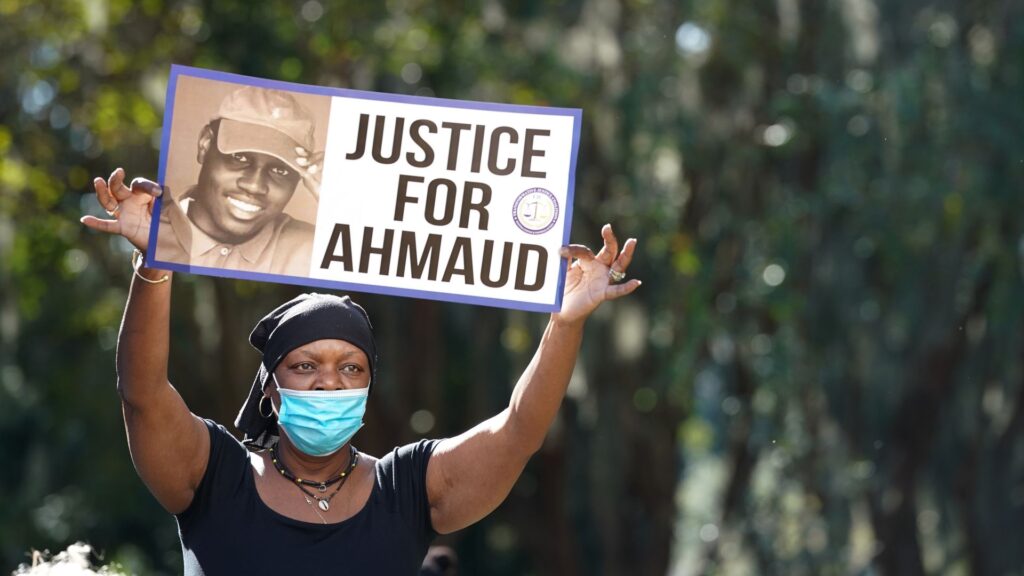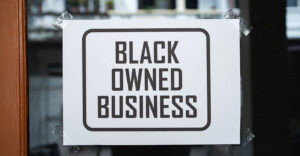A jury finds Ahmaud Arbery’s 3 killers guilty of federal hate crimes

A jury in Brunswick, Ga., unanimously found defendants Travis McMichael, his father Greg McMichael, and their neighbor William “Roddie” Bryan guilty on all counts in a federal hate crimes trial.
The jury deliberated for less than a day. At the heart of this case was a question of whether or not race was a motivating factor in why the three defendants chased and shot Ahmaud Arbery as he ran through their coastal Georgia neighborhood in February 2020.
The defendants were charged with violating Arbery’s civil rights, kidnapping, and for the McMichaels, an additional charge of use of a firearm to commit a crime. All three men were convicted of murdering Arbery in a state trial last year and sentenced to life in prison.
The federal charges carry a maximum life sentence. The defendants will have 14 days to file appeals.
To convict on this hate crimes charge, federal prosecutors were tasked with proving to the jury that the defendants targeted Arbery because he was Black. For four days last week, witnesses recounted racist interactions with Greg and Travis McMichael, and prosecutors spent a full morning of the trial going over racist and sometimes violent content from the defendants’ digital footprints.
“If Ahmaud was another white person jogging, would this have happened in the way that it did? If Ahmaud hadn’t been using public streets, would this have happened the way it did?” prosecutor Christopher Perras asked in the government’s closing arguments on Monday.
He argued that the racial slurs and memes, while not illegal in themselves, could help inform jurors about the mindset of the defendants when they saw Arbery run through Satilla Shores that day.
Perras said they acted on racial assumptions, racial resentment and racial anger that had been building for years.
“They didn’t need to talk about it. They knew what they were going to do,” Perras told jurors. “They grabbed their guns and went after him.”
“Would this have happened to a white guy? Yes,” said Amy Copeland, attorney for Travis McMichael. She encouraged jurors to consider the evidence that wasn’t presented: The government never called any Black witnesses to share stories of her client’s racism, she argued, and there was no evidence that Travis McMichael belonged to any white supremacist groups. Copeland declined to call any witnesses to testify for Travis McMichael during the trial.

None of the attorneys disputed any of the racism evidenced in their clients’ digital footprints, and even personally disavowed these viewpoints, while maintaining that the defendants had legitimate reasons to pursue Arbery, after recognizing him as the same man seen on surveillance cameras inside a home construction site at night.
Bryan’s attorney, Pete Theodocion, tried to emphasize the differences between his client and the other two, telling jurors that Bryan “wasn’t trying to be Johnny Law-Enforcement,” but “his instinct told him people don’t get chased like that unless they’ve done something wrong, and in some cases very wrong.”








